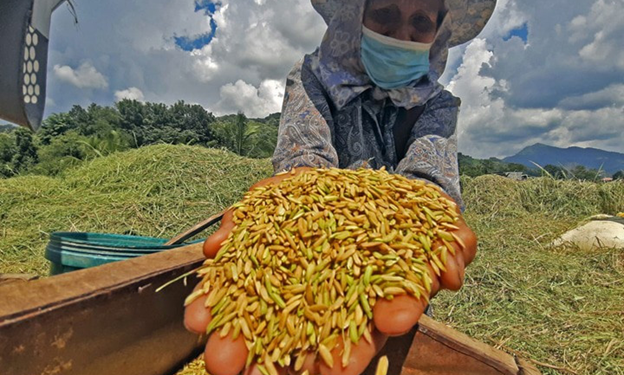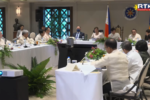Marcos Jr. suspends rice importation starting September

President Ferdinand “Bongbong” Marcos Jr. ordered the Department of Agriculture (DA) to suspension all rice importation for 60 days beginning September 1, 2025.
Marcos issued the directive to protect local farmers reeling from low palay prices during this current harvest season, instead of following the suggestion of the Agriculture Department to increase the tariff of imported rice.
Presidential Communications Office Acting Secretary Dave Gomez said President Marcos believed that it is not yet time to discuss tariff increases on imported rice.
“We will still see if we need to resort to that. Right now the decision is to suspend all rice importation for 60 days beginning Sept. 1. ‘Yan po ang utos ng ating Mahal na Pangulo para matulungan ang ating mga magsasaka ng biga,” Gomez said in a brief message to reporters, while in India for the State Visit.
Earlier, Agriculture Secretary Francisco Tiu Laurel Jr. recommend during a cabinet meeting an increase in tariffs of imported rice due to the sharp drop in palay prices amid record-high production.
The Marcos administration reduced rice tariffs to 15% to provide relief to consumers amid soaring world prices during that period.
On the other hand, the Federation of Free Farmers (FFF) criticized the ”government’s delay” in imposing safeguards for local rice farmers, saying that many of them have been pushed into debt, with some questioning whether it is still worth planting at all.
In a statement, Tiu Laurel welcomed the President’s decision to suspend rice importation for 60 days—while holding off on a tariff hike, calling the move as a “measured response” to the current challenges faced by rice farmers.
“The suspension is a more calibrated action—one that we can quickly reverse if needed,” said the Agriculture chief.
“It gives us the flexibility to act fast to protect both our farmers and our consumers. A premature tariff hike, on the other hand, could backfire and would take much longer to undo,” added Tiu Laurel.
The DA chief further said, “We are walking a tightrope here. The stakes are high for both our farmers and the Filipino people, so it’s crucial that we strike the right balance.”
Citing reports, the DA chief said that, in some places, rice traders are buying palay at P8 a kilo—just two thirds of the amount spent by the most efficient farmers to produce a kilo of palay.
Tiu Laurel said the Agriculture Department will use the two-month import freeze to assess its effects on palay prices and the broader market.






